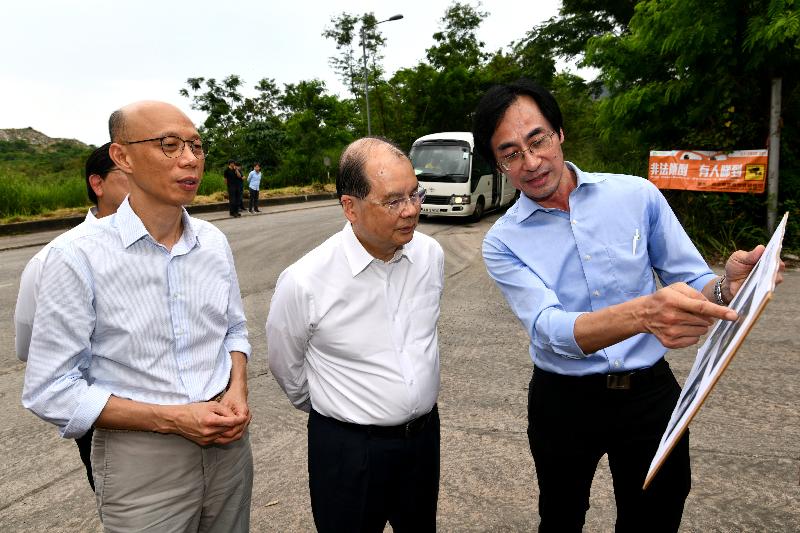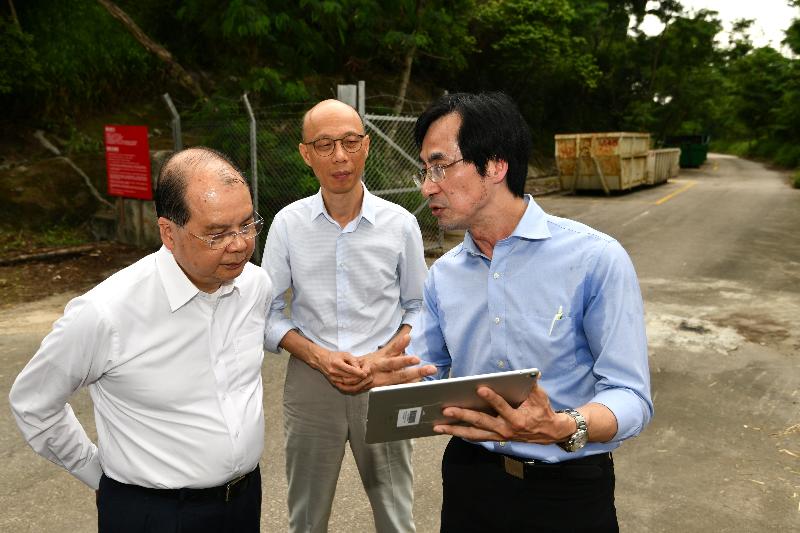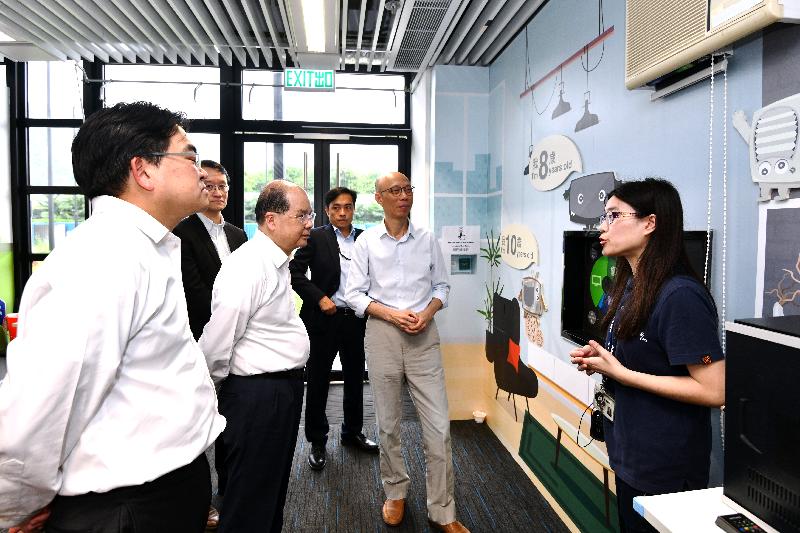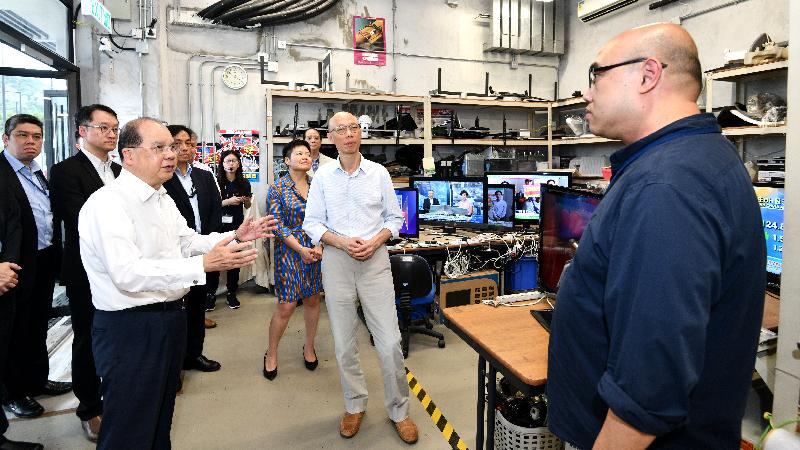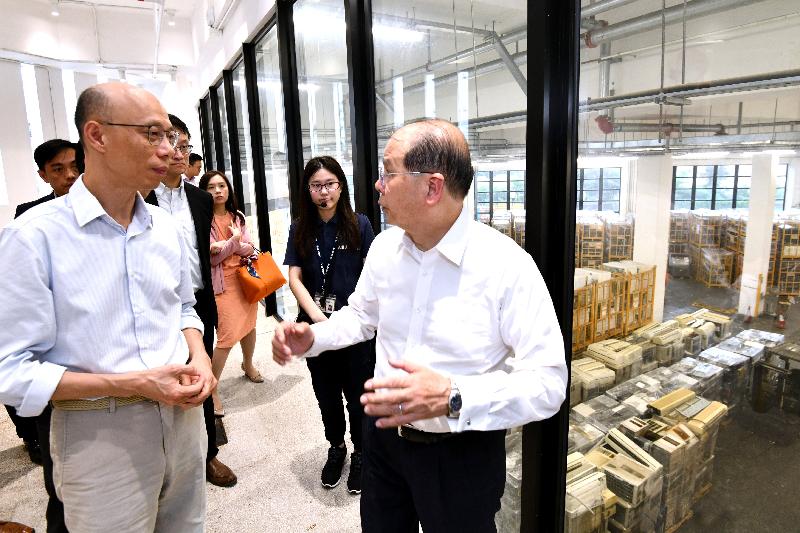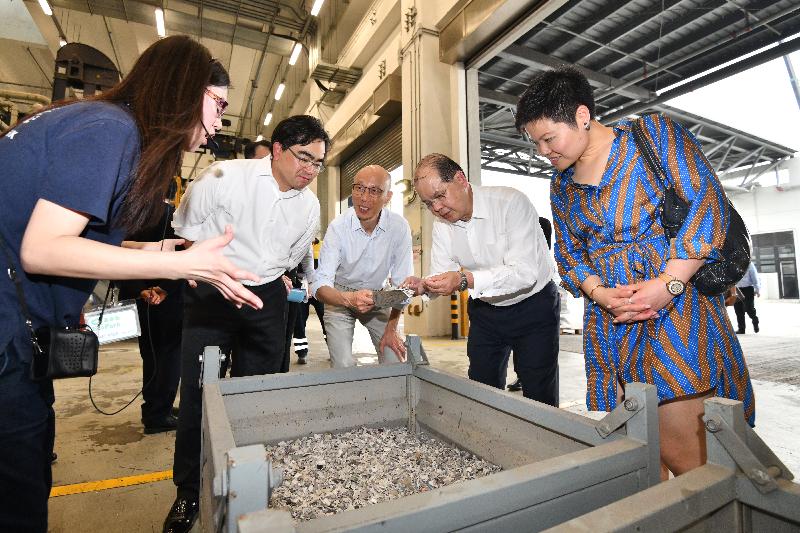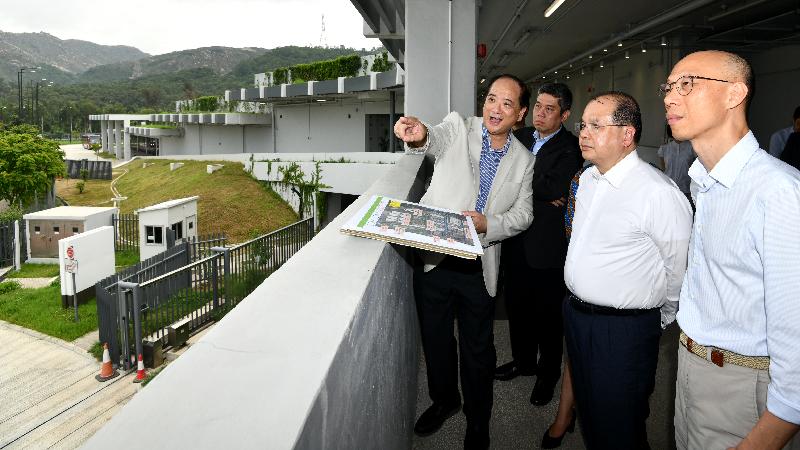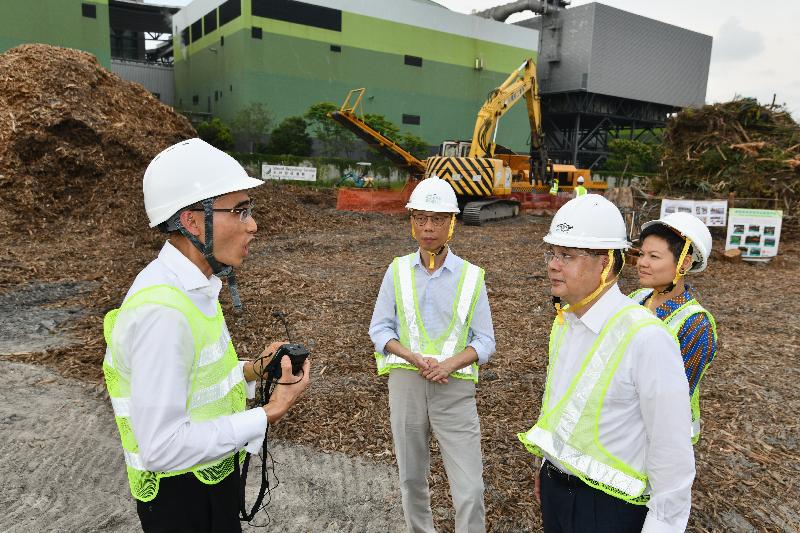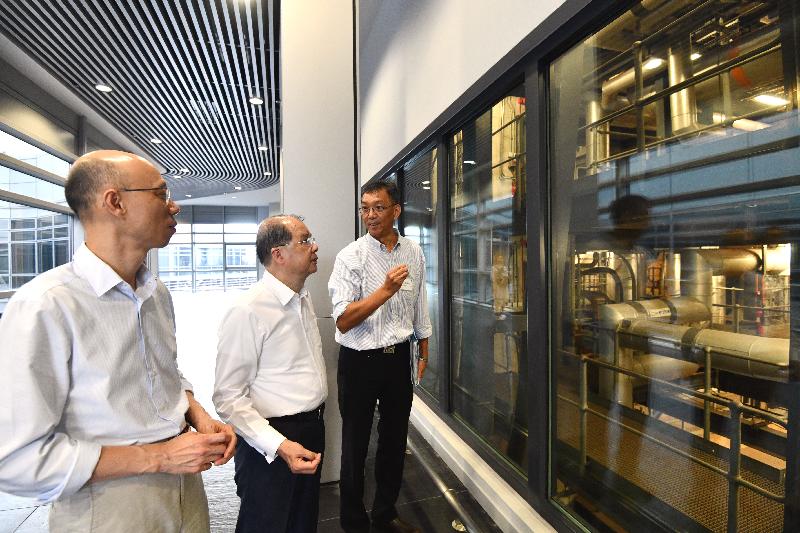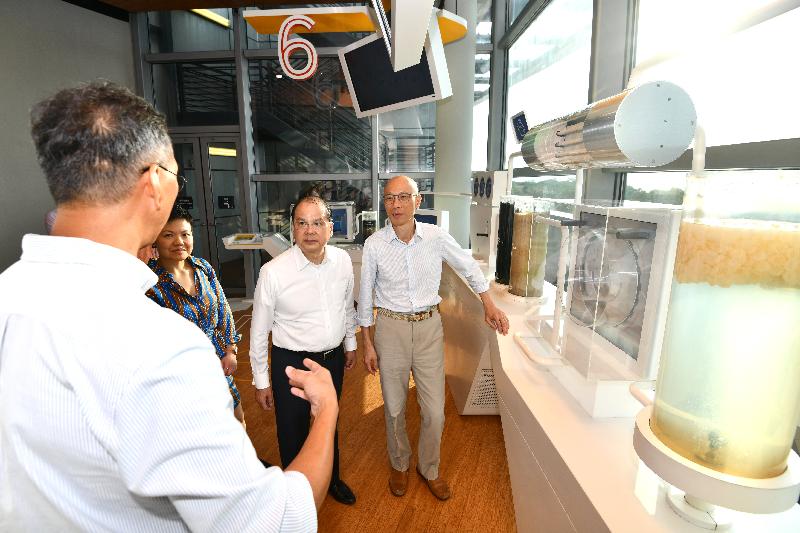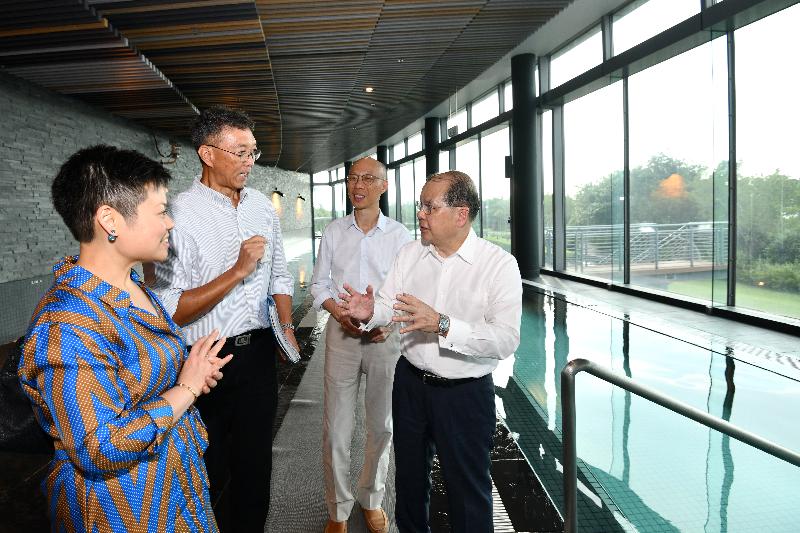CS visits waste treatment and recycling facilities (with photos)
****************************************************************
Accompanied by the Secretary for the Environment, Mr Wong Kam-sing, Mr Cheung first inspected fly-tipping black spots and skip storage area at Siu Lang Shui Road in Tuen Mun. Mr Cheung was also briefed by EPD staff on the effectiveness of joint efforts by government departments to step up enforcement actions against illegal construction waste disposal.
Mr Cheung then visited the 3-hectare WEEE·PARK within the EcoPark in Tuen Mun, which provides essential infrastructure for the full implementation of the Producer Responsibility Scheme on Waste Electrical and Electronic Equipment (WEEE) last year. He was pleased to note the rapid development in waste-to-resources and recycling-related infrastructure in recent years.
Mr Cheung was briefed on how advanced technologies and equipment in WEEE·PARK could help transform waste regulated electrical equipment (i.e. air-conditioners, refrigerators, washing machines, televisions, computers, printers, scanners and monitors) into valuable secondary raw materials through detoxification, dismantling and recycling processes. He further visited the refurbishment workshop in WEEE·PARK to understand how serviceable electrical appliances collected could be repaired to become refurbished items for families in need, promoting a caring community while going green.
Mr Cheung pointed out that the Hong Kong Special Administrative Region (HKSAR) Government attached importance to supporting sustainable development of the recycling industry and provided long-term sites at the EcoPark in Tuen Mun for the recycling industry at an affordable rental cost.
He was pleased to learn that more than 10 recyclers were operating in the EcoPark to collect and recycle waste cooking oil, waste metals, waste wood, WEEE and more. He also noted that a local waste paper recycling and manufacturing plant would be built and operated in the EcoPark. The plant will have the capacity of processing 300 000 tonnes of local waste paper annually or about one third of the total waste paper recovered in Hong Kong each year when commences operation in 2022/2023.
Mr Cheung then proceeded to the temporary yard waste disposal and treatment site near T·PARK to inspect the disposal progress of tree waste collected after the passage of Super Typhoon Mangkhut and note that the disposal work was nearly completed. The site would start to collect yard waste arising from works projects under various government departments. He also received a briefing by EPD staff on the operation of the wood shredder and how shredded wood produced from the collected yard waste could be reused and recycled.
Later, Mr Cheung arrived at T·PARK where he was briefed by EPD staff on the sludge treatment technology, plant operation and waste-to-energy process and how the facilities of the park could self-sustain and how the park realised the sustainable development concept. T•PARK has received a number of awards, including the Special Architectural Award – Architectural Sustainability of Hong Kong Institute of Architects (HKIA) Annual Awards 2016-17, and Grand Award as well as Sustainability Award of DFA Design for Asia Award 2016.
Mr Cheung was pleased to see that EPD had reused and recycled useful resources effectively through a series of measures and infrastructure facilities. He encouraged EPD colleagues to continue to provide the industry with professional support with the aim of promoting the sustainable development of Hong Kong in concert.
Ends/Wednesday, May 15, 2019
Issued at HKT 18:30
Issued at HKT 18:30
NNNN





